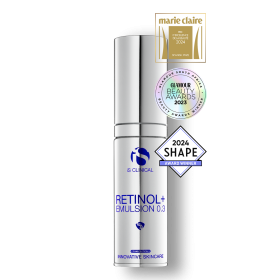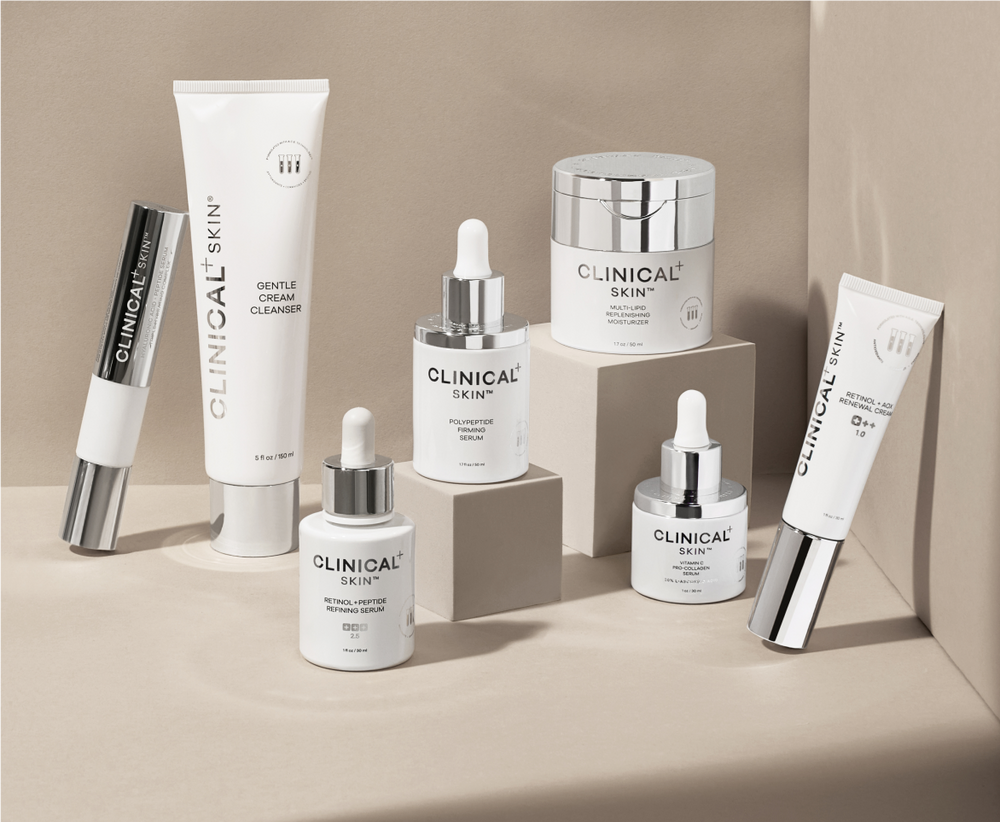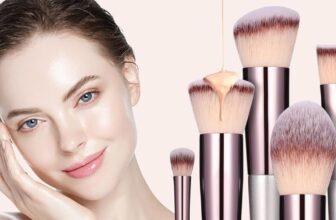Is Clinical Skincare a trusted brand? Yes, it offers high-quality products for skin health.
Many people seek effective solutions for their skin concerns. This brand claims to provide just that. Skincare plays a vital role in our daily routines. With so many options available, it can be hard to know which products work best.
Is Clinical Skincare stands out for its focus on clinical results and science-backed formulas. This brand aims to address a variety of skin issues, from aging to acne. Customers often look for products that deliver real results without harsh ingredients. Understanding the effectiveness and benefits of Is Clinical Skincare can help you make informed choices. Let’s explore what makes this brand popular and if it’s the right fit for your skincare needs.
Introduction To Clinical Skincare
Clinical skincare focuses on the science of skin health. It combines medical knowledge with effective products. The goal is to treat and improve skin issues. This area has grown in popularity. Many seek solutions for various skin concerns.
Defining Clinical Skincare
Clinical skincare involves products that are often stronger than regular ones. These products contain active ingredients. They aim to treat conditions like acne, wrinkles, and hyperpigmentation. Dermatologists and skincare professionals often recommend them.
These formulations are backed by research. They are designed to deliver results. Many people find clinical skincare effective for long-term use.
Current Trends In Skincare
People are more aware of skin health today. They seek products that work quickly and effectively. Natural ingredients are gaining popularity. Many want to avoid harsh chemicals in their skincare.
Personalization is another trend. More brands offer tailored skincare solutions. Consumers enjoy products made for their specific skin type. Transparency is important too. Shoppers want to know what is in their products.
Technology plays a role in this industry. New tools help analyze skin needs. This leads to better product choices. Overall, the focus is on effective, safe, and personalized skincare.
Clinical Vs. Over-the-counter Products
Many people face the choice between clinical skincare products and over-the-counter (OTC) options. Understanding the differences helps in making informed decisions. Each type of product has its unique benefits and downsides. This section explores these key differences.
Key Differences
Clinical skincare products are often stronger than OTC products. They usually require a prescription or are sold in specialized clinics. OTC products are more accessible. You can find them in stores or online.
| Feature | Clinical Products | Over-the-Counter Products |
|---|---|---|
| Accessibility | Prescription or specialist required | Available in stores and online |
| Strength | Higher potency | Lower potency |
| Target Issues | Severe skin issues | General skin care |
| Cost | More expensive | Generally affordable |
Ingredients Battle
Ingredients set clinical products apart from OTC ones. Clinical products contain higher concentrations of active ingredients. These ingredients tackle serious skin problems.
- Retinoids: Common in clinical products. Great for acne and anti-aging.
- Alpha Hydroxy Acids (AHAs): Found in clinical products for exfoliation.
- Peptides: Often in clinical lines. They help with skin firmness.
OTC products may use similar ingredients but in lower amounts. This limits their effectiveness on severe skin concerns. Popular OTC ingredients include:
- Salicylic Acid: Good for mild acne.
- Hyaluronic Acid: Hydrates skin.
- Vitamin C: Brightens skin.
Choosing between clinical and OTC products often depends on individual needs. For severe issues, clinical options may be better. For everyday care, OTC products are sufficient.
The Science Behind Clinical Skincare
Understanding the science behind clinical skincare helps you choose the right products. Clinical skincare focuses on effective, proven solutions for various skin issues. It combines research and active ingredients to improve skin health. Here, we explore two key areas: dermatological research and active ingredients.
Dermatological Research
Dermatological research plays a vital role in clinical skincare. Researchers study skin conditions and test products. The goal is to find safe and effective treatments. Here are some key points:
- Studies identify skin issues like acne, eczema, and aging.
- Research tests how ingredients work on skin.
- Clinical trials ensure product safety and effectiveness.
These studies help brands like iS Clinical create targeted solutions. Their products are based on scientific evidence, not just trends.
Active Ingredients And Their Effects
Active ingredients are the heart of clinical skincare. They deliver real benefits to the skin. Here are some common active ingredients:
| Active Ingredient | Benefits |
|---|---|
| Retinol | Reduces fine lines and wrinkles. |
| Vitamin C | Brightens skin and evens tone. |
| Hyaluronic Acid | Hydrates and plumps the skin. |
| Salicylic Acid | Clears acne and unclogs pores. |
Each ingredient has unique effects. For example, retinol helps with aging, while salicylic acid targets acne. Choosing products with the right active ingredients is essential for your skin type. Always check for clinical studies supporting the claims of these ingredients.

Credit: isclinical.com
Real Results Or Marketing Gimmicks?
Is Clinical Skincare claims to deliver real results. Some users rave about their products. Others wonder if the hype is just marketing. Let’s explore the facts behind these claims.
Analyzing Product Claims
Is Clinical Skincare highlights ingredients like antioxidants and peptides. They say these help repair skin and reduce aging signs. Many products promise brightening effects and smoother skin. But do they really work?
Scientific studies support some claims. Ingredients like hyaluronic acid attract moisture. Retinol can improve skin texture and tone. Users should know not every product suits every skin type.
Checking ingredient lists is crucial. Some people may have allergies. Others might experience irritation. Understanding your skin is the first step.
Consumer Testimonials And Reviews
Consumer feedback is mixed. Many users report positive changes. They notice smoother skin and fewer wrinkles. Others find no change after use.
Reading reviews helps potential buyers. Look for common themes in feedback. Are there specific products that stand out? Do users mention skin reactions?
Online forums and skincare groups offer insights. Engaging with other users can guide choices. Real experiences matter in deciding what to try.
Cost Analysis Of Clinical Skincare
Understanding the cost of clinical skincare is essential. Prices can vary widely. It is important to weigh costs against benefits. This helps in making informed choices. Below, we break down price points and budgeting tips.
Price Points Compared To Benefits
Clinical skincare products can be expensive. However, they often provide significant benefits. Below is a table comparing common price points with their advantages.
| Product Type | Average Price | Key Benefits |
|---|---|---|
| Cleanser | $30 – $60 | Removes impurities, preps skin for treatment |
| Serum | $70 – $150 | Targets specific skin issues, boosts hydration |
| Moisturizer | $50 – $100 | Hydrates skin, improves texture and tone |
| Sun Protection | $25 – $50 | Prevents sun damage, protects against aging |
Investing in quality products can yield better results. Many users notice improvements in skin texture and overall health. Consider this when assessing price points.
Budgeting For Skincare
Creating a skincare budget is crucial. It helps manage expenses effectively. Here are some tips to consider:
- Determine your skin type and needs.
- Research products before purchasing.
- Prioritize essential items over luxury ones.
- Look for sales or discounts.
- Consider buying in bulk for savings.
Start with a basic routine. Cleanser, moisturizer, and sunscreen are key. Once comfortable, add serums or treatments as needed. This approach helps control costs while achieving results.
Expert Opinions On Clinical Skincare
Understanding clinical skincare is essential. Expert opinions provide clarity. Both dermatologists and estheticians offer valuable insights. Their experiences shape our views on effective skincare.
Dermatologists’ Perspectives
Dermatologists focus on skin health. They emphasize the importance of ingredients in skincare products. Here are key points from their views:
- Active Ingredients: They recommend products with proven actives, like retinoids and hyaluronic acid.
- Customized Care: Every skin type needs a tailored approach. One size does not fit all.
- Clinical Evidence: Products should have clinical studies backing their claims.
Dermatologists often highlight the need for sunscreen. Daily protection prevents skin damage. They suggest broad-spectrum options with SPF 30 or higher.
Estheticians’ Insights
Estheticians focus on the practical application of skincare. Their insights come from hands-on experience. Here are some key takeaways:
- Skin Assessment: They conduct thorough assessments before recommending products.
- Routine Consistency: Consistent use of products leads to better results.
- Holistic Approach: Skin health involves lifestyle choices, not just products.
Estheticians also stress the importance of hydration. Well-hydrated skin looks and feels better. They recommend using moisturizers daily.
| Expert | Focus Area | Key Recommendation |
|---|---|---|
| Dermatologists | Skin Health | Use products with proven active ingredients. |
| Estheticians | Practical Application | Maintain a consistent skincare routine. |
These expert opinions guide us in choosing the right products. Both perspectives help individuals achieve healthier skin.
Navigating The World Of Skincare
Choosing the right skincare products can be hard. With so many options, it’s easy to feel lost. Understanding your skin type is the first step. Knowing what works for your skin will make the journey smoother. Let’s explore how to choose the right products and avoid common mistakes.
How To Choose The Right Products
Selecting the right products is essential. Start by identifying your skin type. Is it oily, dry, or sensitive? Each type needs different care. Here are some tips:
- Read labels: Check for ingredients that suit your skin.
- Look for quality: Choose brands known for safety.
- Test products: Use samples before buying full sizes.
- Consider your lifestyle: Some products fit better with daily routines.
Using a simple routine helps. Focus on three main steps: cleanse, treat, and moisturize.
Avoiding Common Pitfalls
Many people make mistakes in their skincare routines. Here are common pitfalls to watch out for:
- Using too many products: This can irritate the skin.
- Ignoring skin changes: Listen to your skin’s needs.
- Neglecting sun protection: Always apply sunscreen.
- Skipping patch tests: Test new products on a small area first.
Staying informed helps avoid these traps. Regularly review your skincare routine. Adjust as needed for the best results.
Remember, skincare is personal. What works for one may not work for another. Keep learning and adapting for healthy skin.
The Future Of Skincare
The future of skincare is bright and full of promise. New ideas are changing how we care for our skin. Technology plays a big role in this change. Innovative products aim to meet individual needs better than ever.
As we look ahead, personalized skincare will take center stage. Each person’s skin is unique. Solutions must fit these differences. This ensures better results and happier customers.
Innovations On The Horizon
Exciting innovations are coming to the skincare industry. Smart devices can analyze your skin’s condition. They provide tailored recommendations for your skincare routine. This makes it easier to choose the right products.
New ingredients are also making waves. Biotech solutions are developing from nature. These ingredients promise effective results without harsh chemicals. Sustainability in sourcing is a growing trend too. Consumers want products that are kind to the planet.
The Role Of Personalized Skincare
Personalized skincare is changing how we approach beauty. People want products that match their specific needs. Brands now offer customized solutions based on skin type and concerns.
Advanced tools help create personalized regimens. Skin analysis apps can guide users to the best products. This trend helps build trust between brands and customers.
As personalization grows, so does customer satisfaction. People feel more connected to their skincare choices. This connection leads to better skin health and overall happiness.
Conclusion: Making An Informed Decision
Choosing the right skincare products can be tough. With so many options, it is important to weigh the benefits and downsides. This helps in making smart choices for your skin.
Weighing The Pros And Cons
| Pros | Cons |
|---|---|
| High-Quality Ingredients: Contains effective, skin-friendly components. | Price: May be more expensive than drugstore brands. |
| Targeted Solutions: Offers products for specific skin issues. | Availability: May not be available in all stores. |
| Positive Reviews: Many users report good results. | Skin Sensitivity: Some products may irritate sensitive skin. |
Understanding these factors helps you decide. Consider your skin type and needs. Do research on how each product works. This knowledge leads to better choices.
Taking The Next Steps In Skincare
- Identify Your Skin Type: Know whether your skin is oily, dry, or combination.
- Research Products: Look for reviews and ingredient lists.
- Patch Test: Always test new products on a small area first.
- Consult a Professional: A dermatologist can guide you.
- Monitor Your Skin: Keep track of how your skin reacts over time.
These steps ensure a thoughtful approach to skincare. They help you find products that work best for you. Focus on your unique skin needs and preferences.

Credit: clinicalskin.com

Credit: skincareessentials.com
Frequently Asked Questions
What Is Clinical Skincare?
Clinical skincare refers to products and treatments designed to address specific skin concerns. These may include acne, aging, or pigmentation issues. Often backed by scientific research, clinical skincare products typically contain higher concentrations of active ingredients. They can be found in medical settings or professional skincare lines.
How Does Clinical Skincare Differ From Regular Skincare?
Clinical skincare differs from regular skincare in formulation and purpose. Clinical products often contain potent ingredients aimed at treating specific skin conditions. Regular skincare may focus on maintenance and hydration. Patients should consult professionals for recommendations tailored to their unique skin needs.
Who Should Use Clinical Skincare Products?
Clinical skincare products are suitable for individuals with specific skin concerns. Those struggling with acne, rosacea, or signs of aging can benefit the most. It’s advisable to consult a dermatologist before starting any clinical regimen. A professional can recommend the most effective products for your skin type.
Are Clinical Skincare Products Safe For All Skin Types?
While many clinical skincare products are safe, not all are suitable for every skin type. Some formulations may cause irritation, especially for sensitive skin. Always patch-test new products before full application. Consulting a skincare professional ensures you choose the right products for your specific needs.
Conclusion
Clinical skincare offers real solutions for common skin issues. It focuses on results, using science-backed products. Choosing the right clinical products can improve your skin health. Always consult with a skincare professional for guidance. They can help you find what works best for you.
Remember, healthy skin boosts confidence and well-being. Explore options that suit your needs. Your skin deserves the best care possible. Investing in clinical skincare is a step towards healthier skin. Make informed choices and enjoy the benefits.







